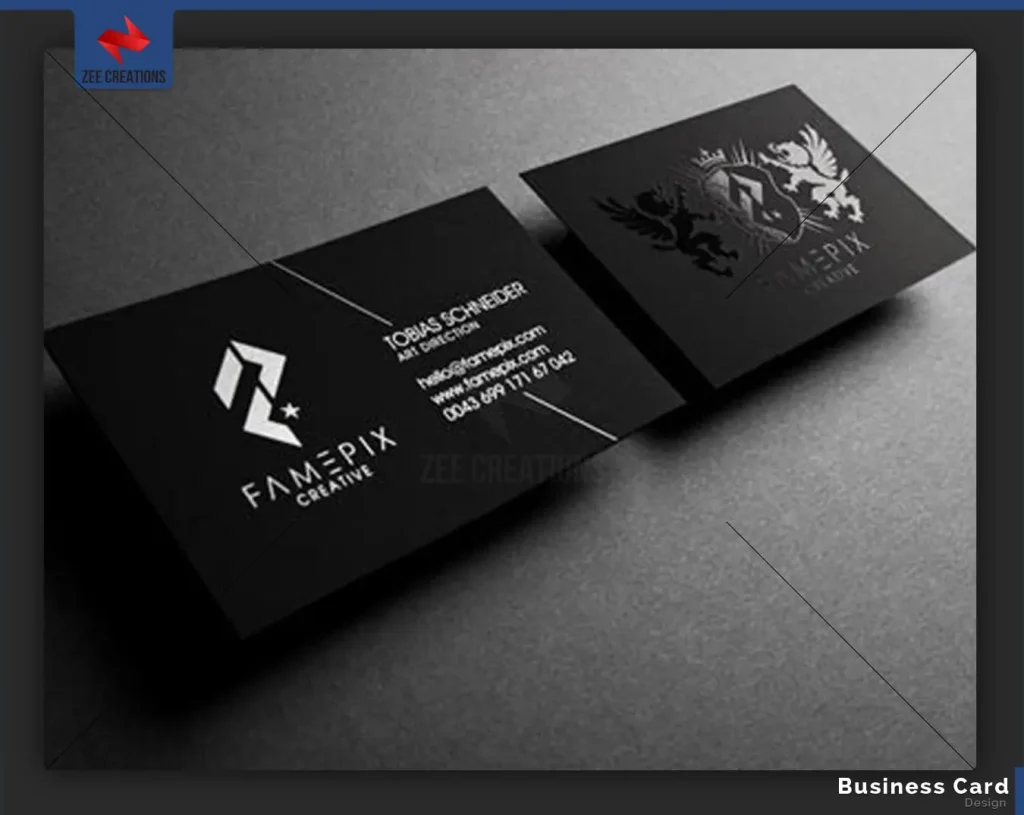The Significance of Business Cards
In the fast-paced world of business, first impressions are crucial. A business card serves as a tangible representation of an individual or company, encapsulating their identity and values in a compact format. These small cards are not just about exchanging contact information; they embody professionalism and can set the tone for future interactions. A well-designed business card can convey a sense of credibility and seriousness, while a poorly designed one can detract from the individual’s or company’s reputation. As networking becomes increasingly important in business, the role of business cards in establishing connections cannot be overstated.
Designing the Perfect Business Card
The design of a business card is paramount to its effectiveness. It should reflect the brand’s personality while remaining clear and professional. Key elements include the choice of colors, typography, and imagery, all of which should align with the brand’s overall aesthetic. Simplicity is often key; too much information can overwhelm the recipient. Including essential details like name, job title, company name, phone number, and email address is critical, but designers should also consider incorporating social media handles or a website link, especially for businesses that thrive on digital engagement. The card’s material also matters; a high-quality cardstock can enhance the perception of professionalism and reliability.
Networking and Business Cards
Networking is an essential skill for success in business, and business cards play a pivotal role in this process. When attending events, conferences, or casual meet-ups, having a stack of business cards readily available can facilitate smoother interactions. A business card acts as a conversation starter and serves as a physical reminder of the meeting, increasing the chances of follow-up communication. In a digital age, where much communication occurs online, the personal touch of handing over a physical card can make a memorable impression. Moreover, exchanging business cards creates an opportunity to engage in brief discussions about one’s work or interests, further establishing rapport between individuals.
Evolving Trends in Business Cards
As technology continues to advance, business cards are evolving to adapt to modern needs. Digital Business Cards are gaining popularity, allowing for easy sharing through smartphones and other devices. These virtual cards can include interactive elements like links to websites, social media profiles, and even videos. Additionally, NFC-enabled cards enable users to tap their card to a smartphone, instantly sharing contact information. However, despite these advancements, traditional business cards maintain their value in many professional circles. They can serve as a memorable keepsake, while digital cards may be quickly forgotten in a sea of emails and messages. Ultimately, the choice between traditional and digital formats will depend on the individual’s personal style and industry norms.
Conclusion
In conclusion, business cards remain an essential tool for professionals looking to create meaningful connections. Their significance extends beyond mere contact information; they are a reflection of one’s brand and professionalism. With thoughtful design and strategic networking, business cards can facilitate introductions and leave lasting impressions that foster business relationships. As trends evolve, balancing traditional and modern approaches will be key to maximizing the effectiveness of this timeless networking tool. Investing time and creativity into business card creation can yield significant benefits, ultimately enhancing one’s professional image and opportunities.


